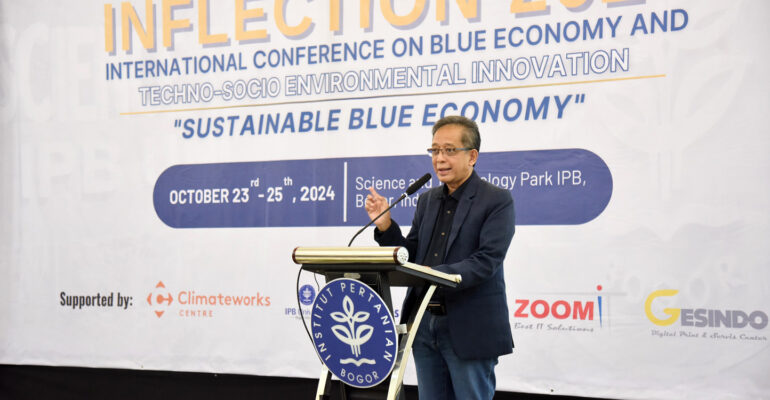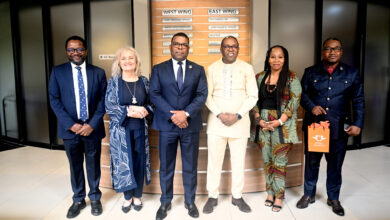INFLECTION 2024: IPB University Leads New Blue Economy Direction Amid Global Climate Change

IPB University recently organized the International Conference on Blue Economy and Techno-Socio Environmental Innovation (INFLECTION) 2024 at its Startup Center Building in Bogor. The event, held on October 24, aimed to examine the future development of the blue economy in light of challenges posed by global climate change.
Importance of INFLECTION 2024
Professor Luky Adrianto, Chief of the International Research Institute (LRI) for Maritime, Marine, and Fisheries at IPB University, highlighted the importance of INFLECTION 2024 as a forum for sharing diverse ideas and expertise. The conference featured speakers, researchers, students, and government representatives from various countries.
Goals of the Conference
The primary objective of the conference was to underscore the blue economy’s contribution to advancing the Sustainable Development Goals (SDGs), promoting a balanced and sustainable future for both human societies and marine ecosystems. Professor Luky expressed expectations that the event would encourage new partnerships and innovative solutions, fostering a shared vision for a resilient blue economy.
Insights from Dr. Leonardo AA Teguh Sambodo
Dr. Leonardo AA Teguh Sambodo, an advisor at the Ministry of National Development Planning, noted the growing global emphasis on safeguarding natural resources as a basis for food security amid climate change challenges. He indicated that nations, particularly within the Organization for Economic Co-operation and Development (OECD) and the European Union, are increasingly acknowledging the importance of utilizing marine resources sustainably.
Harnessing Science and Technology
Additionally, Dr. Leonardo pointed out the blue economy’s capability to harness scientific and technological advancements, creating economic opportunities with social and economic benefits for both present and future generations.
Marine Spatial Planning Policies
Ir Suharyanto, the Director of Marine Spatial Planning at the Ministry of Maritime Affairs and Fisheries, stressed the legally binding nature of marine spatial planning policies. These policies require stakeholders to collaborate in the sustainable management of marine resources and environmental services while addressing the challenges posed by global climate change and ensuring the long-term viability of marine ecosystems and biodiversity.
Conclusion of the Conference
The conference concluded with calls from experts for collaborative efforts in the stewardship and protection of marine and coastal resources for future generations.
(Source: IPB University)




